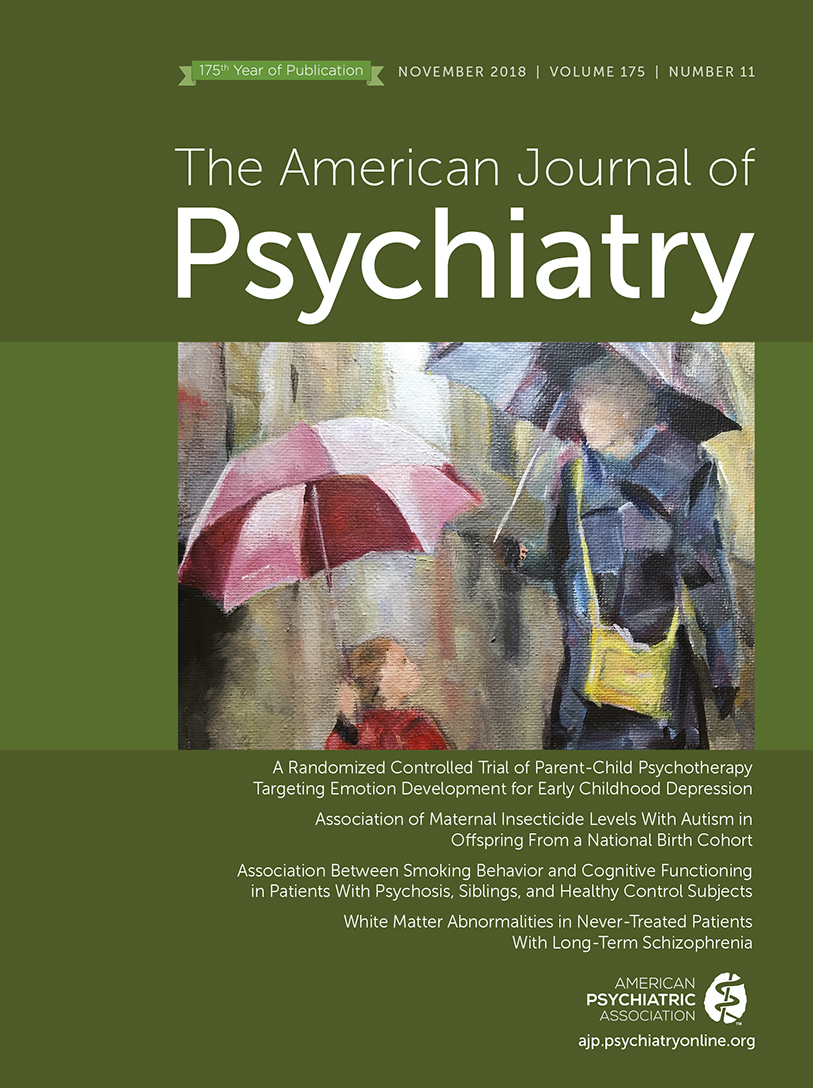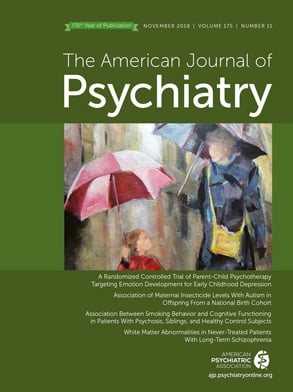T
o the E
ditor: We thank Drs. Waits and Hoge for their constructive comments on our placebo-controlled trial investigating the clinical efficacy of traumatic memory reactivation under the influence of the reconsolidation blocker propranolol for posttraumatic stress disorder (PTSD) (
1). In assessing the usefulness of various therapeutic approaches derived from reconsolidation theory, it is important to understand that a reactivated (i.e., deconsolidated) memory can either be updated with new information or have its reconsolidation blocked. Reconsolidation blockade using propranolol is supported by an animal model (
2), by two meta-analyses involving healthy participants and patient populations (
3), and by some imaging studies (
4). In other words, because of this background knowledge, we know for a fact that propranolol is a reconsolidation blocker.
In contrast to this, Waits and Hoge’s letter draws attention to nonpharmacological techniques involving memory reconsolidation “update” mechanisms to treat patients, such as accelerated resolution therapy and cognitive restructuring and imagery modification. One concern with nonpharmacological interventions involving reconsolidation update mechanisms is that it is extremely difficult to determine whether the memory has deconsolidated in the first place and then reconsolidated in an updated (and desired) form, or if extinction processes have been initiated instead of reconsolidation. It remains a black box from a mechanistic viewpoint, and we can only speculate as to what is really going on during the therapy process.
Beyond the issue pertaining to the mechanism of action, other questions are prompted by treatment techniques such as accelerated resolution therapy and the visual-kinesthetic dissociation protocol (
5). Negative consequences of deliberately imposed alterations to the content of patients’ memory, along with the therapist’s responsibilities, can presently only be hypothesized and should be considered in assessing the attractiveness of rescripting treatments.
Shorter-term therapy is also mentioned by Waits and Hoge as one advantage of novel therapies over more classical therapies. However, compared with reconsolidation therapy (a total of 120–150 minutes) (
1), the novel memory update therapies remain relatively long (e.g., imagery rescripting, at 360–480 minutes) or hold promise for only a subset of PTSD patients with specific symptoms (
5).
That said, we are happy to see that reconsolidation is gaining recognition as a novel and exciting paradigm to treat mental disorders. The clinical possibilities opening up in relation to reconsolidation theory are exciting and plural. We predict that many more such modalities will emerge in the coming years.
Acknowledgments
The authors thank Caroline Diekmann, M.A., Janna Marie Heyen, B.Sc., and Nemat Jaafari, M.D., Ph.D., for their assistance with this reply.

